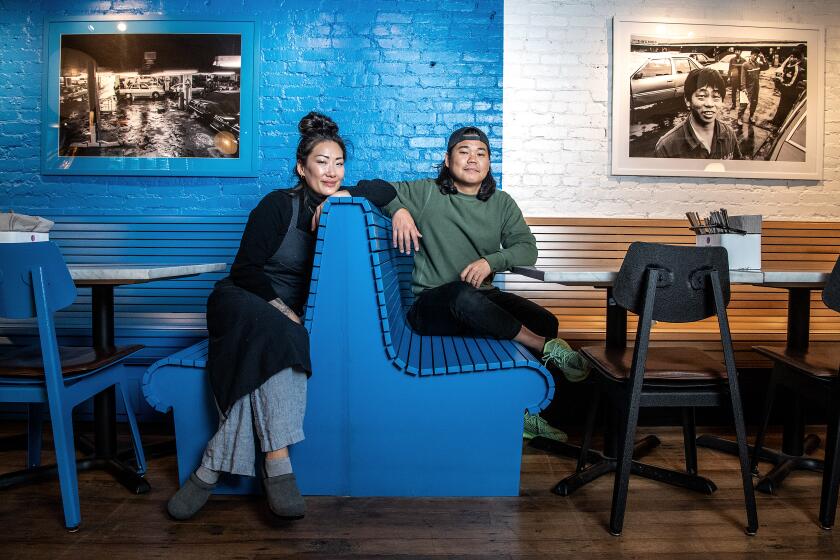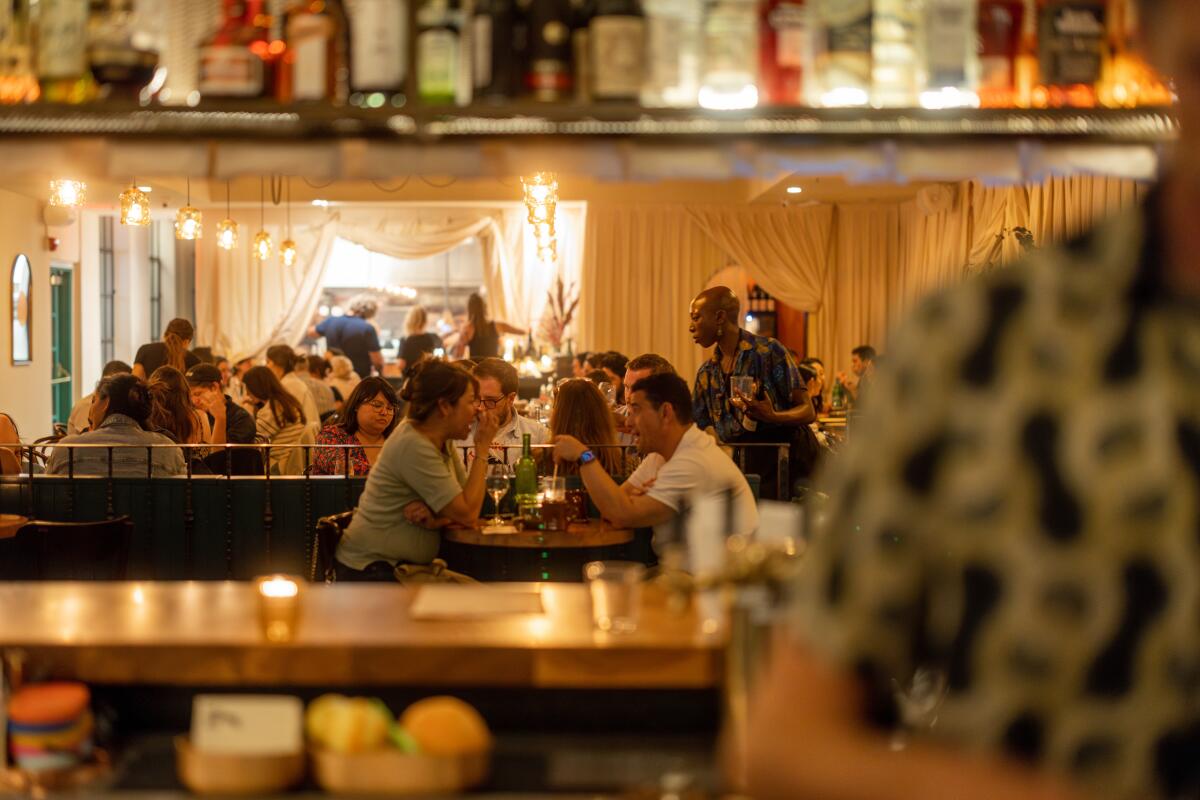
Thinking about romantic dining options in February? Our critic has 22 suggestions
- Share via
Every couple’s idea of romance is different. Yours might include a white tablecloth and Champagne coupes, or crowding in together at a cramped bar for Detroit-style pizza. My partner and I enjoy those too, but for a special night out our first thought is usually sushi and sake.
These 22 restaurants, compiled from the most recently published edition of The Times’ 101 Best Restaurant in L.A., convey to me both “celebration” and “togetherness.” I include many of the expected fancier destinations, with an emphasis on quieter places conducive to conversation. Nothing is arguably more romantic than dining out in a setting where one can hear a tablemate without shouting.
I’ve also added a few unexpectedly amorous options: the place to share wondrous Korean soy-marinated raw crab, or sip some of L.A.’s most artfully crafted tiki drinks, or to treat the leading vegan in your life to mafaldine cacio e pepe and tempeh piccata.
A favorite annual plea from food writers: Rarely is Valentine’s Day an optimal night to experience a restaurant at its finest. Do we really need to tether an expression of love to one calendar date? Make the case to your someone for another evening in February, when scoring reservations will be easier and everyone’s mood will likely be far lighter.
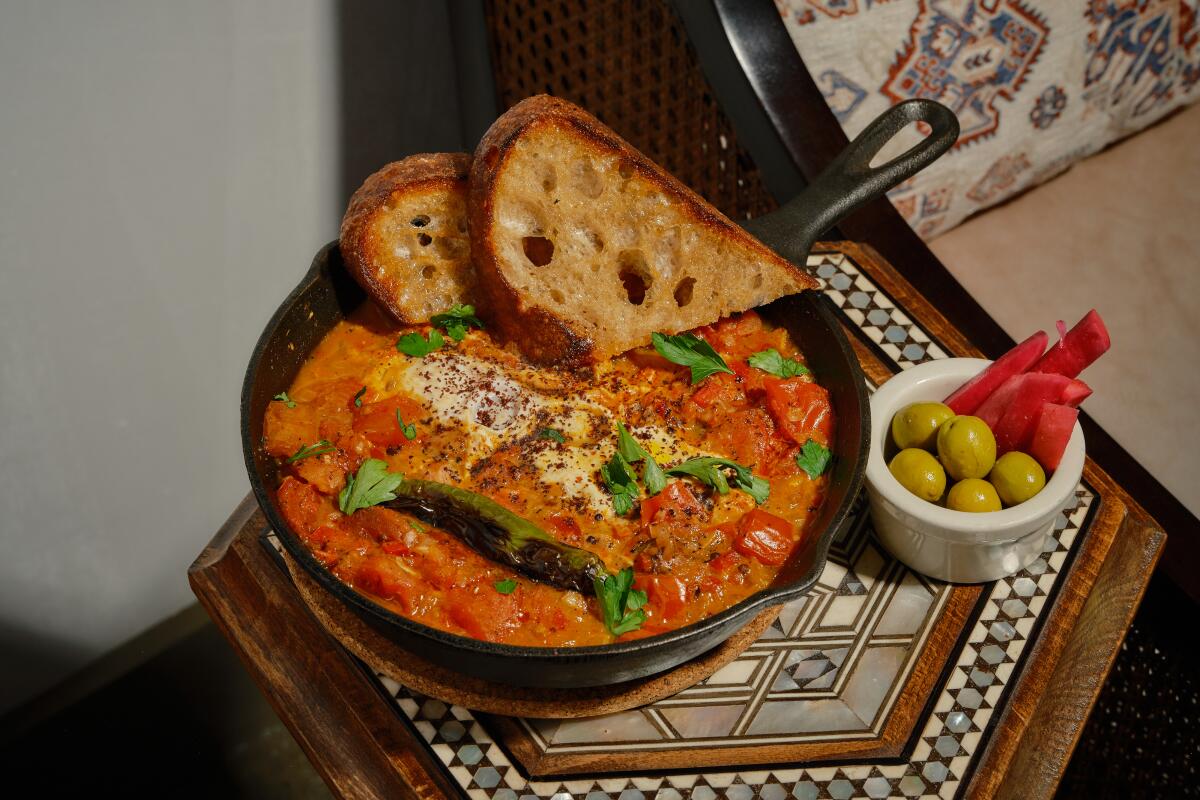
Ammatolí
A few pleasant ubiquities like arugula and beet salad crop up on the menu, but more than ever her cooking leans into tradition-minded dishes. Among exemplary hummus and lemony tabbouleh in the mezze selection, look for more intricate options like fried kibbeh stuffed with herbed spinach, and salty, edge-of-funky grilled halloumi paired with watermelon. Larger plates are excellent for groups, or for leftovers. One standout: Palestinian musakhan, roast chicken and onions piled on flatbread that’s stained nearly purple with sumac. The dish was traditionally consumed in autumn — eaten by hand, composing bites of bread, chicken and onion — with ample olive oil to taste and assess the year’s first local pressings. It’s as satisfying for dinner as it is for brunch alongside a skillet full of saucy shakshuka. I don’t know of more consummate classical Levantine cooking in Southern California.

Alta Adams
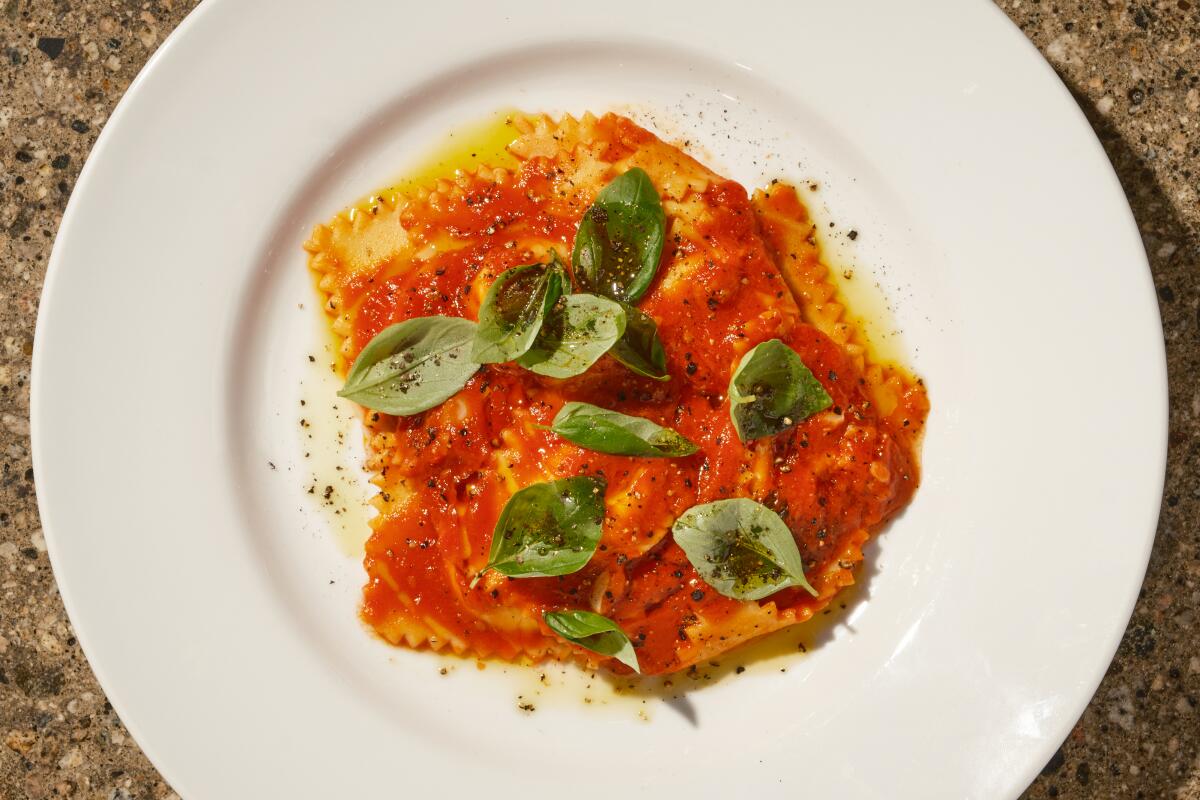
Antico Nuovo
Opened in 2019, Antico Nuovo has steadily found its footing and its audience among the crush of fine-dining Italian restaurants in Los Angeles. It might just be the best of them now. Bold or tenuous, each of the pastas stands out with such distinct personalities; they are the meal’s holy center. Begin by swiping crisp, lofty hunks of focaccia through roughly pureed green chickpeas rich in garlic and olive oil, or go lighter with impeccable amberjack crudo. Whether you’re nearly full after spinach and tomato cannelloni, or move on to crisp-skinned roast chicken, or share a massive tomahawk steak in Marsala jus that recalls Colby’s days as Chi Spacca’s founding chef, prioritize dessert. The seasonal ice creams deserve their renown, and the kitchen has lately been fashioning pistachio and chocolate cannolis that rival those I’ve had in Sicily.
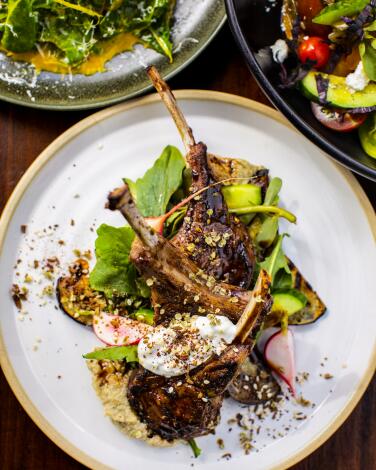
A.O.C.
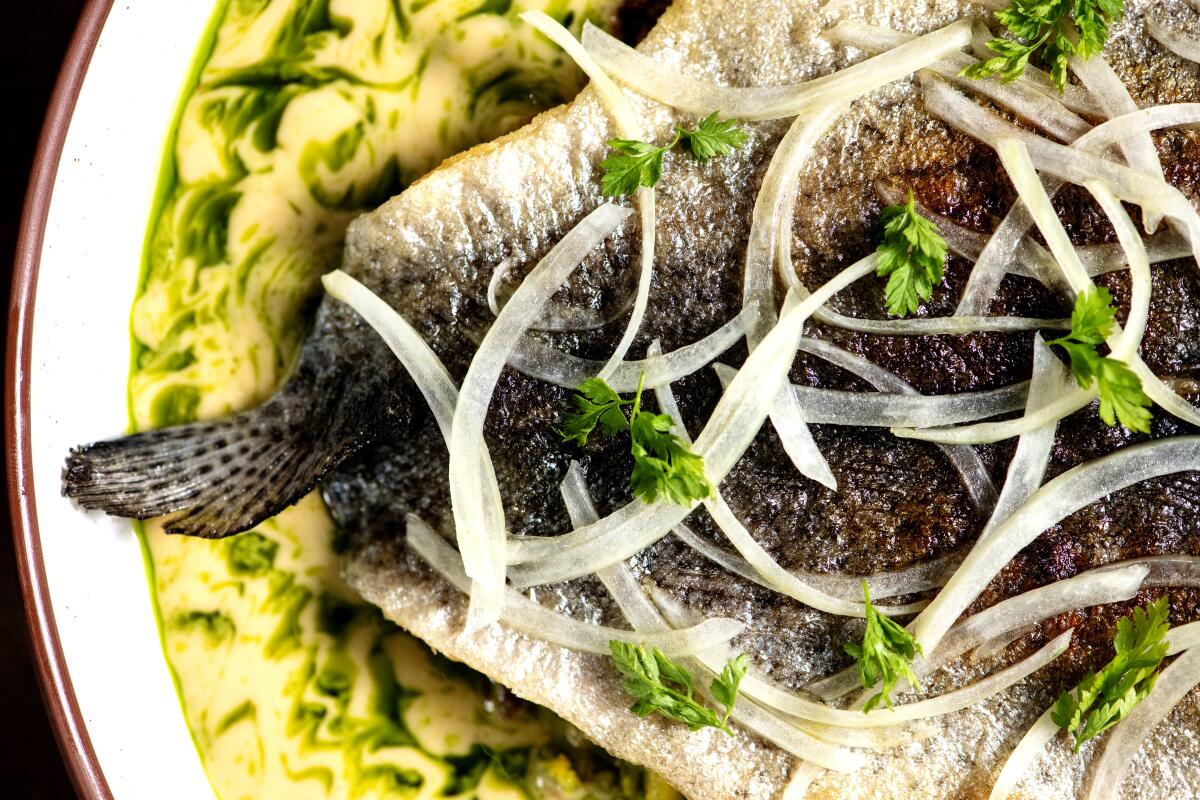
Bar Chelou
Read the full review of Bar Chelou.
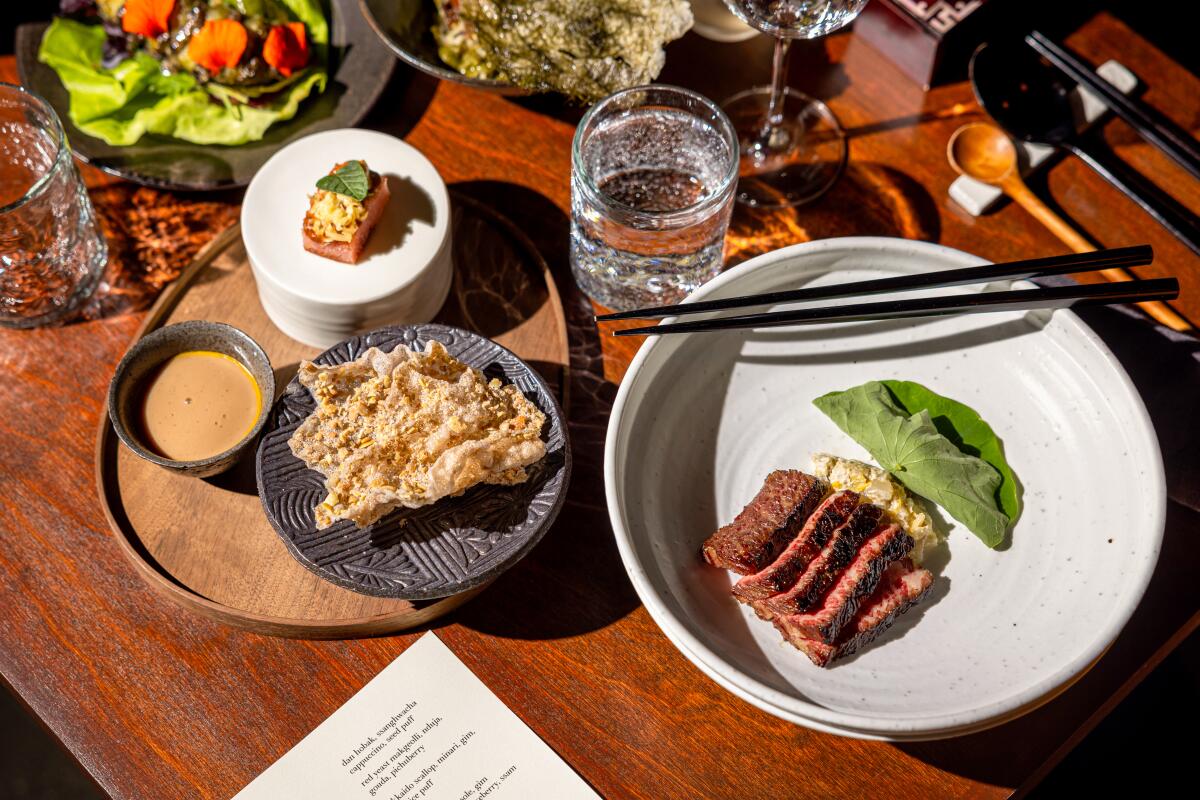
Baroo
They fulfilled their vow in late summer in the form of a sedate, industrial-modernist space in downtown’s Arts District. The new Baroo looks and feels nothing like its predecessor. Mostly that’s a gain: Park runs an engaged, genial team as general manager, and Uh’s calm demeanor and ever-straight back can be viewed through the large kitchen window. The opening menu is $110 for seven courses. To balk at a tasting-menu format is to miss out on sweet, delicate skate fried in seaweed batter and cradled in leafy greens, and slices of charred pork-collar meat fanned over a sauce that riffs on kimchi jjigae … and other dishes, honed but still flaunting a hint of wildness, that trumpet the return of an exceptional culinary mind.
Read the full review of Baroo.
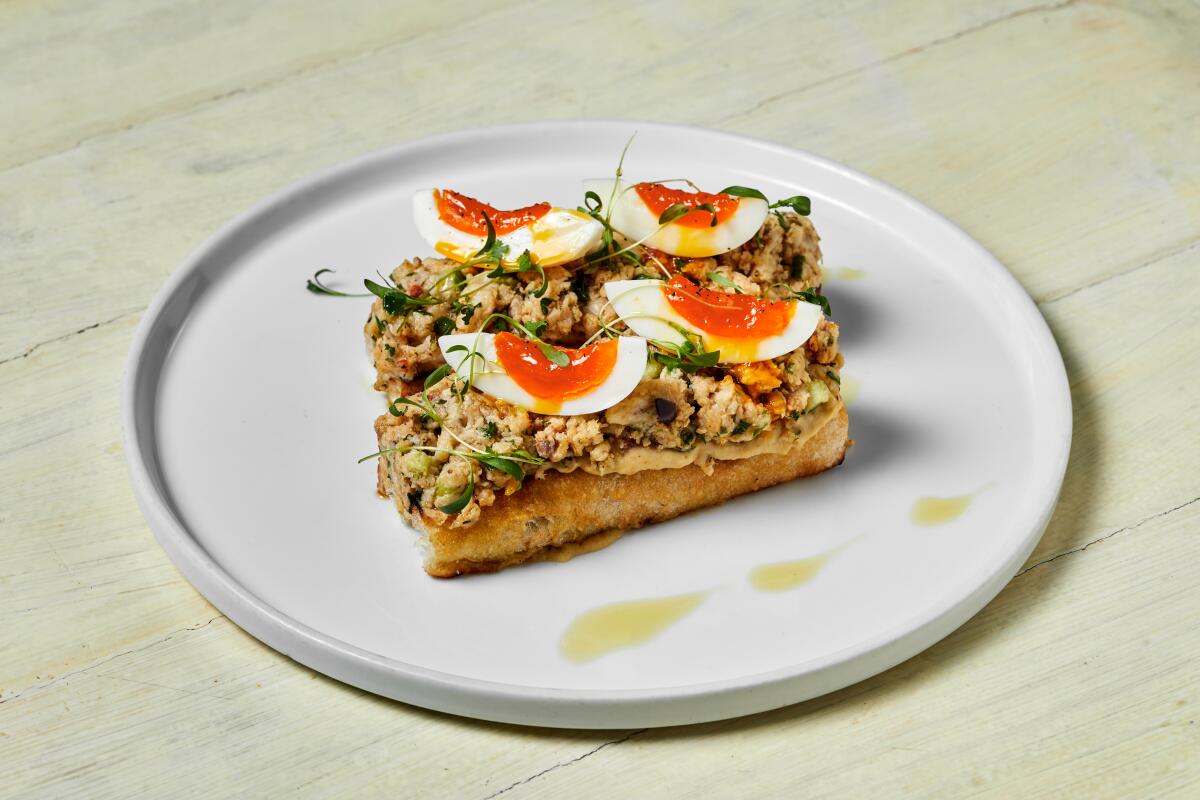
Barsha
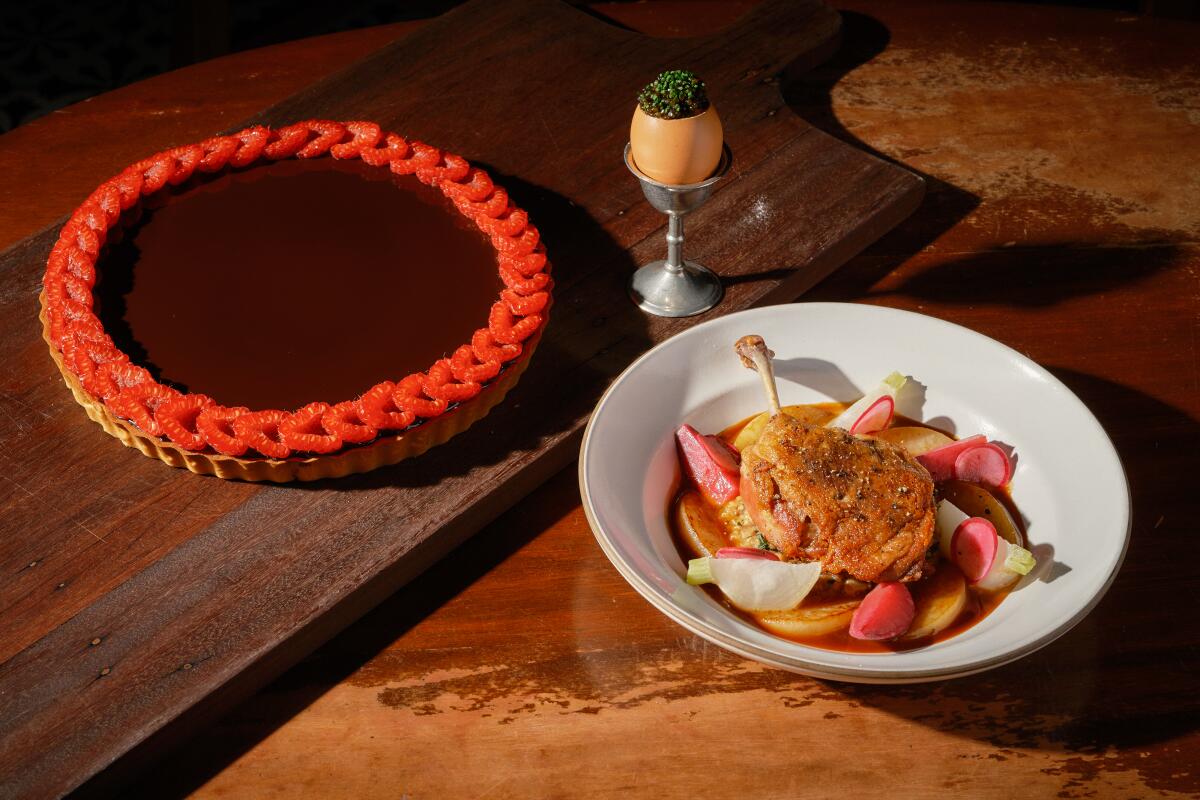
Bicyclette
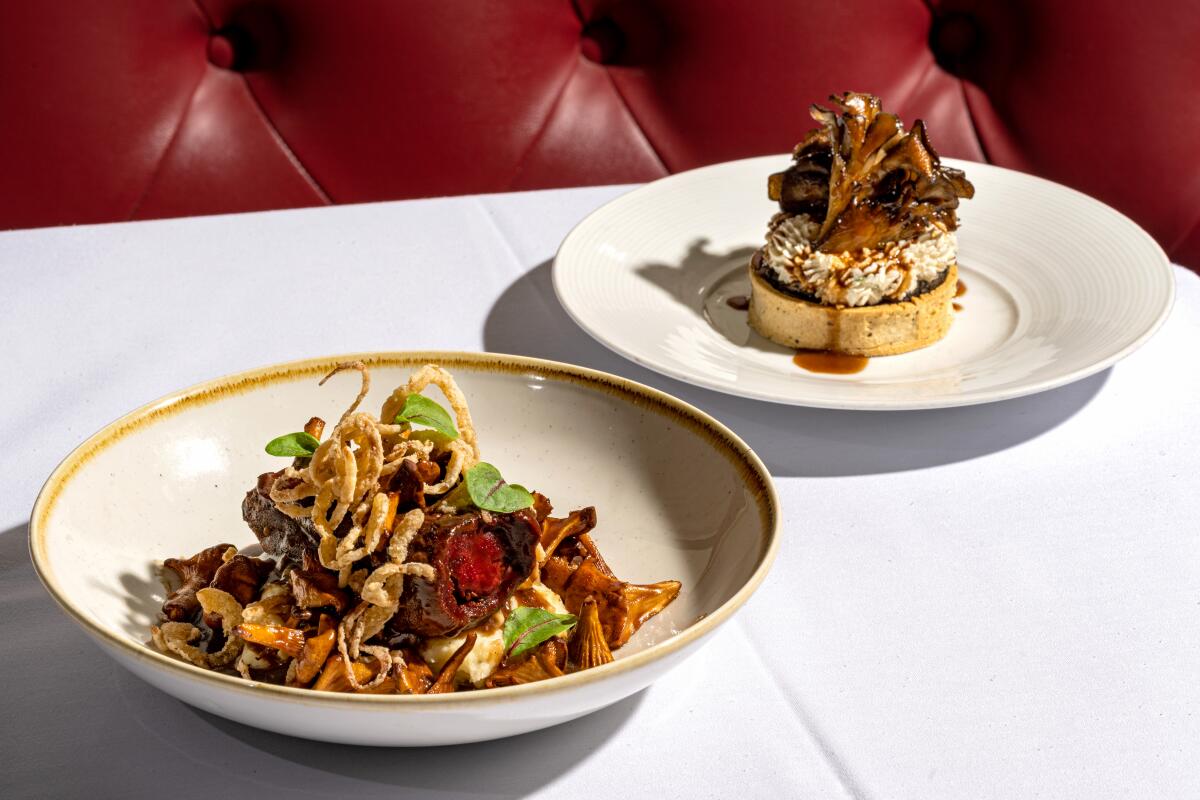
Crossroads Kitchen
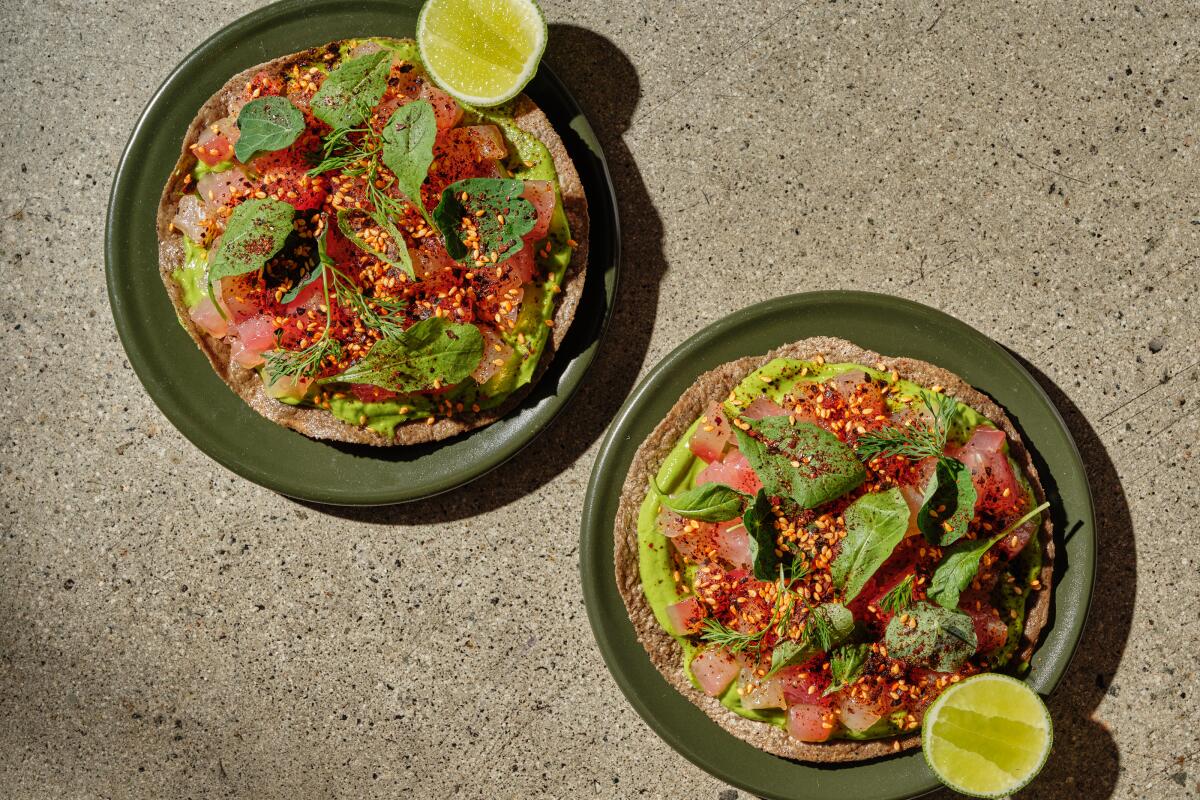
Damian
It’s important to mention Damian’s adjacent taqueria, Ditroit, hidden around back with an entrance down an alley, and the primacy of its extra-long fish flauta with a mulchy, piquant filling that evokes Baja’s smoked marlin tacos.
Read the full review of Damian.
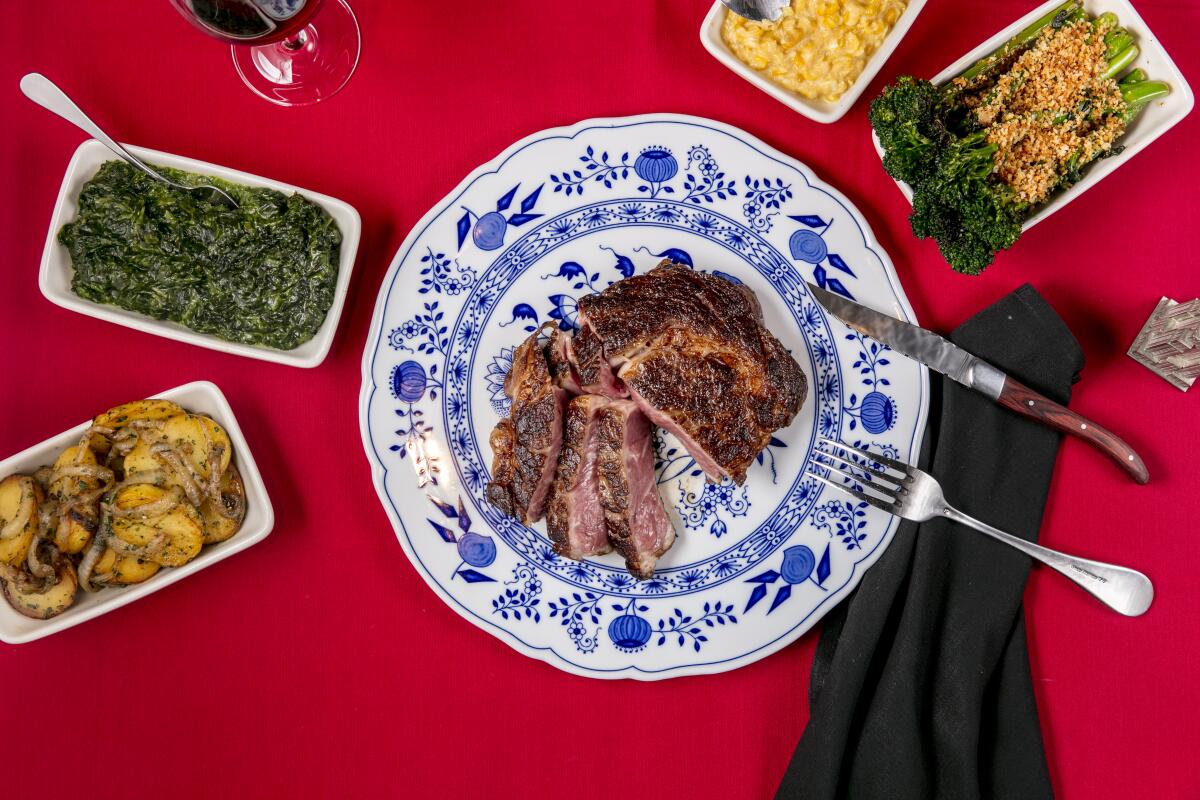
Dear John's
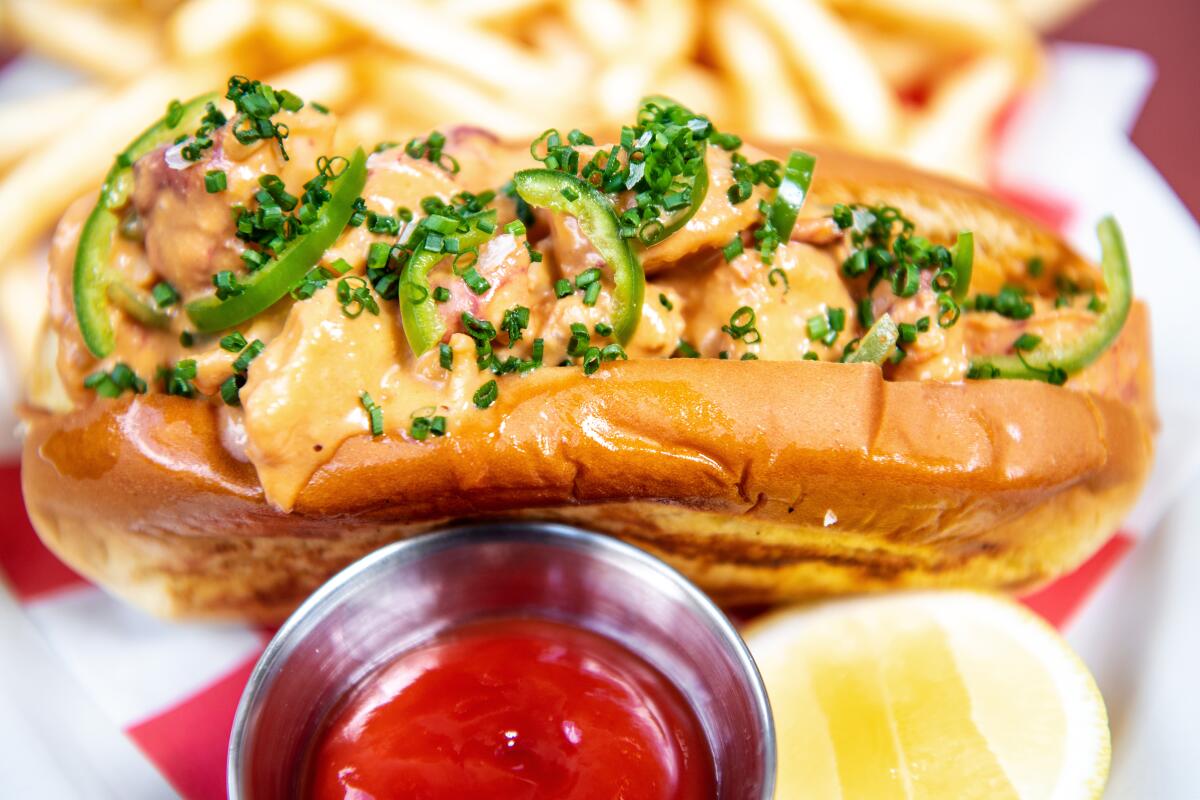
Found Oyster
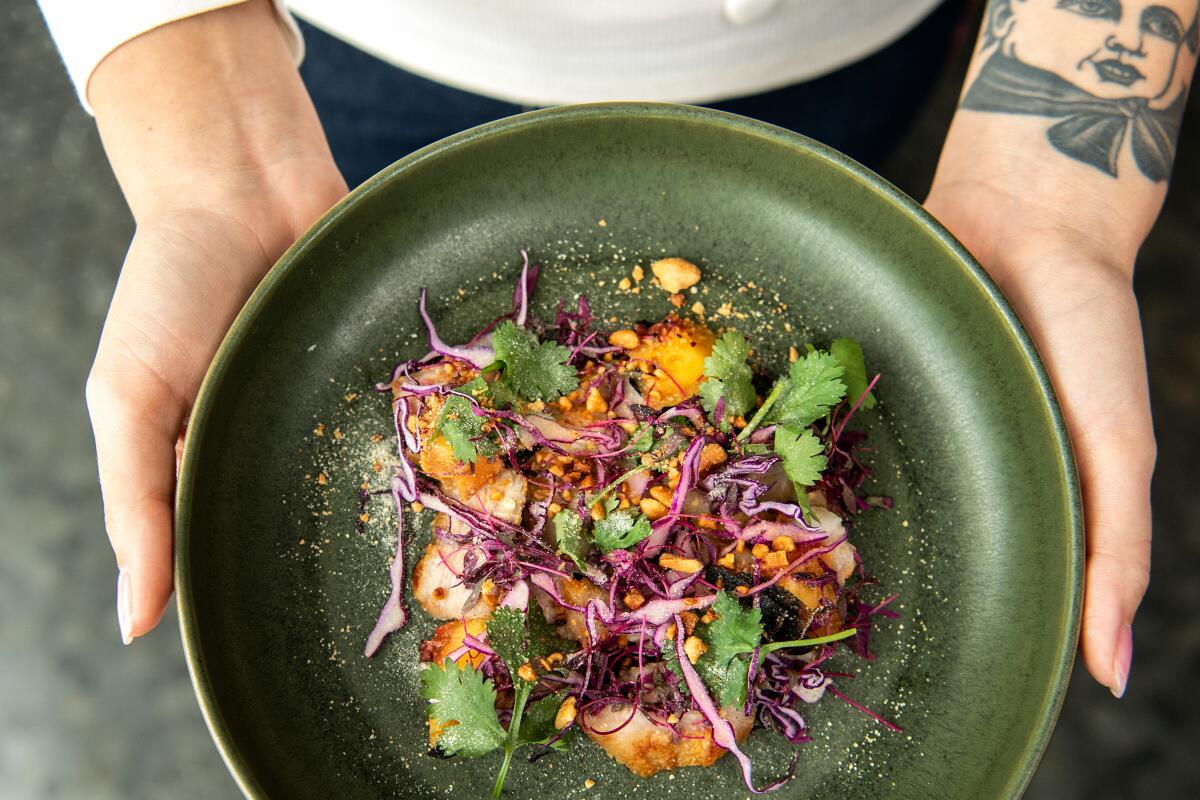
Here's Looking at You
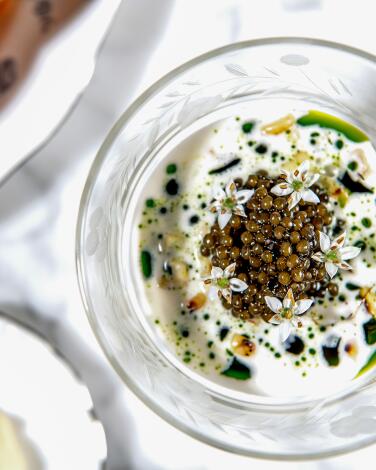
Kato
Those of us who have followed Yao’s career tend to refer to the airy, wood-and-concrete-lined space in Row DTLA as Kato 2.0, since the restaurant began as a bootstrap operation in a West L.A. strip mall in 2016. It’s been nearly two years since the move, an upgrade of outsize proportions, and every ambition that first landed Kato at the top of the 101 Best Restaurants list in 2019 has been more fully realized in spades. Yao’s longtime business partner, Nikki Reginaldo, leads a staff of servers with serious demeanors; she brings levity with wit and boss R&B playlists. Ryan Bailey came aboard in the new location as the third leader and the beverage guy. Between his 70-something-page wine list, including the city’s most trailblazing nonalcoholic drink program, and bar director Austin Hennelly’s alchemical, easy-sipping cocktails, I sometimes wish I could come solely to imbibe. But the food thrills. Look for the most unassuming presence by the stoves, and there’s Yao. His quietness hides his relentless creativity. He’s swapping out luxe Hokkaido scallops in plum reduction one week for lobster over buttery shrimp toast the next, using Sichuan pepper as brain teasers, making the rightful case for pig’s ears as delicacies, and offering a savory-sweet bao filled with salted egg yolk custard as a climax.
Dinner in the main dining room is $275 per person, with a slightly abridged $170 tasting menu of Kato classics at the bar that’s ideal for solo diners and usually includes a dish involving caviar, mussel liquor, smoked onion cream and a filling side of milk bread. It’s wonderful, but the main experience feels more refined, more driven, each time I visit. So much of our fine dining winks with signifiers of our culture — a sashimi plate here, a Mexican ingredient there — but Yao’s cuisine originates from an interior place. This is me, it says. And when we taste it, we understand: This is Los Angeles.
Read the full review of Kato 2.0.
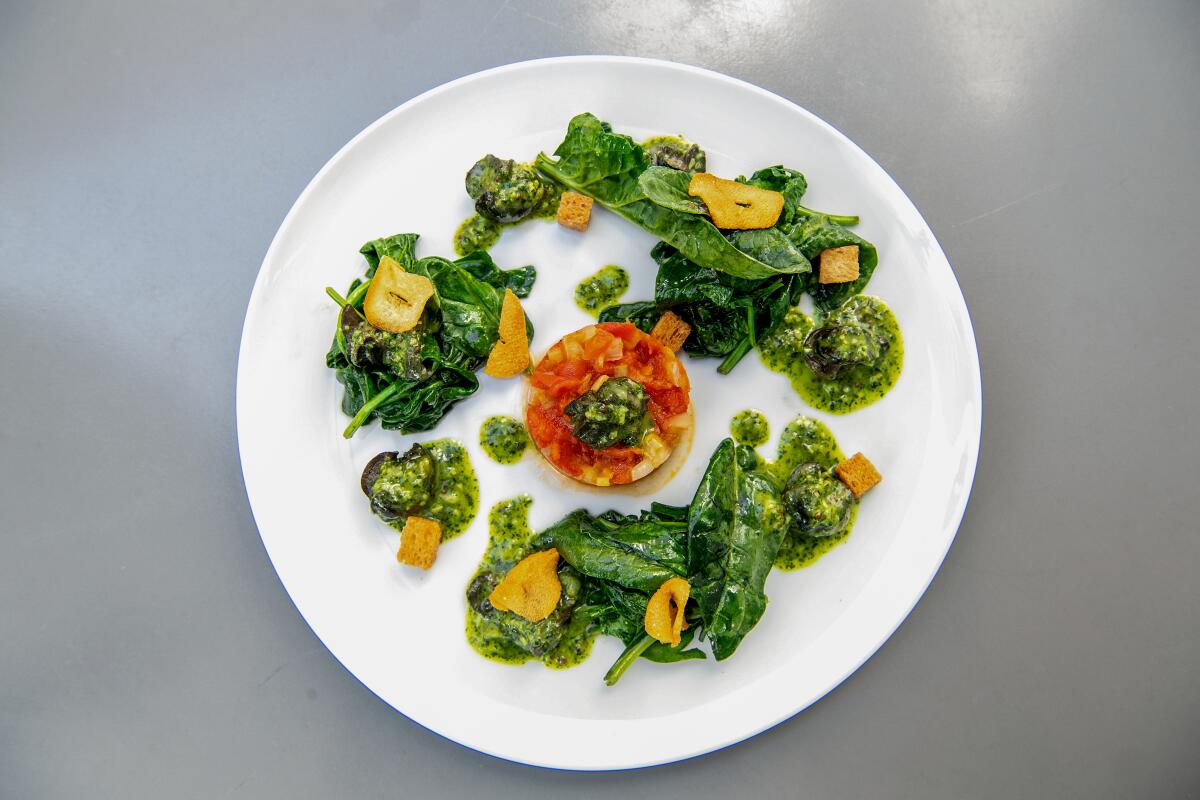
Knife Pleat
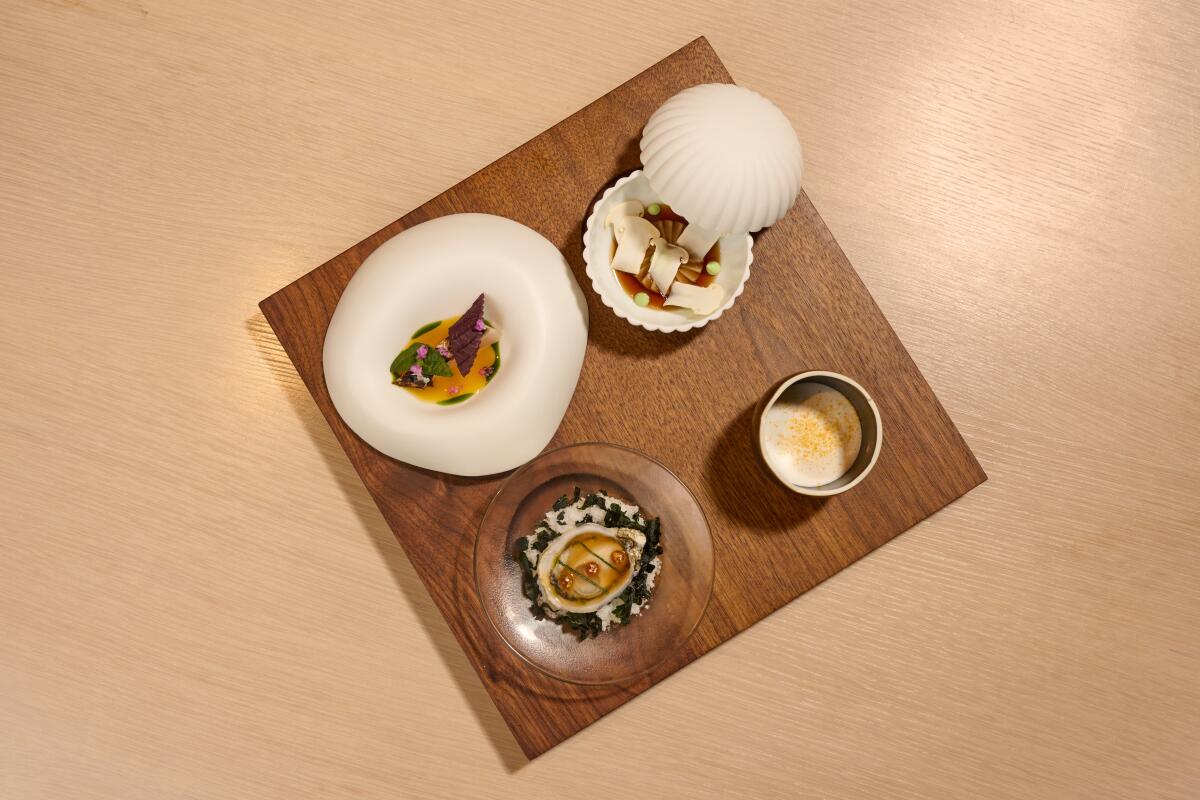
Mélisse
For diners, the transition will feel seamless: The experience remains the very definition of special-occasion dining. Bookended by one-bite sculptures served on gorgeous ceramics to start and finish, two-plus hours float by in a dance of veloutés and nages, uni and lobster, duck press theatrics and ganache tarts fashioned from Valrhona’s line of blond chocolate. Wine pairings aim to impress jaded oenophiles. The cost, beginning at $399 per person, rivals the price of our most opulent omakase counters. Records play on the top-notch stereo system. It was mostly 1970s and ’80s-era R&B during a recent dinner, and caviar just tastes better with Billy Ocean playing in the background.
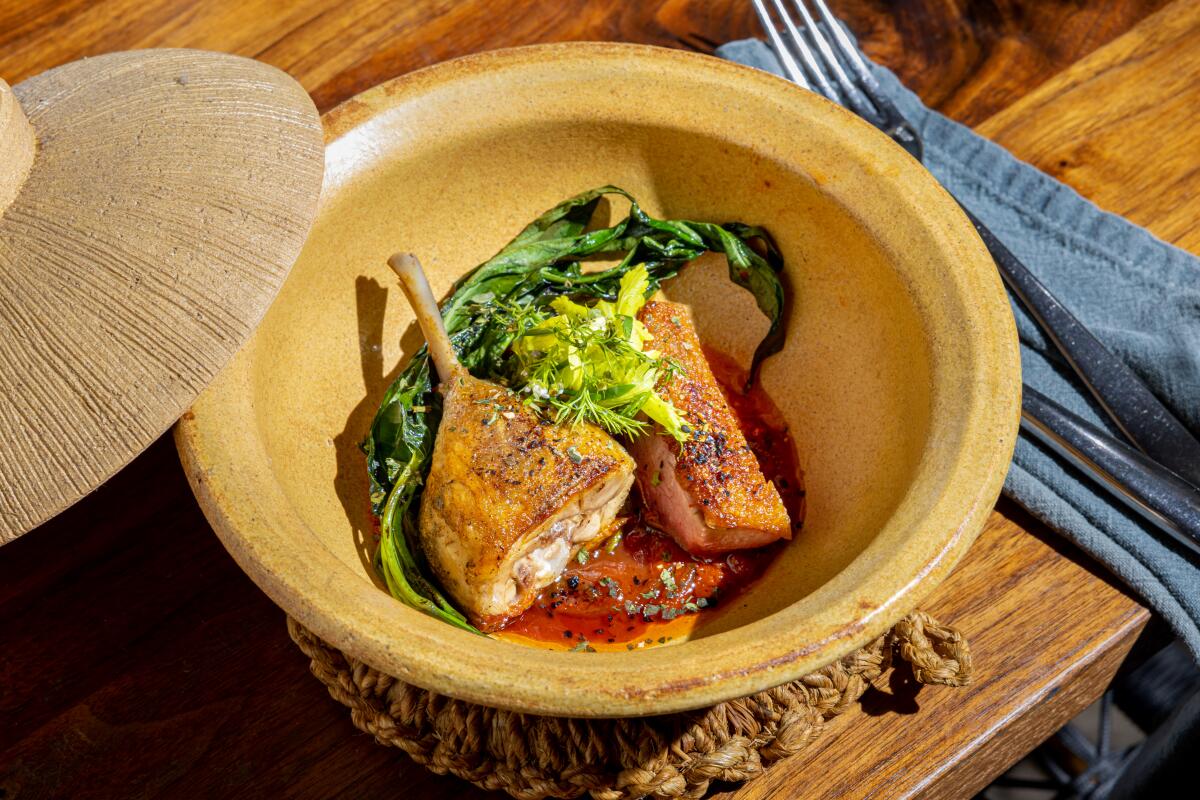
Orsa & Winston
Chawanmushi with clams, gooseberries and caviar opened an early September dinner, highlighting the seemingly improbable combinations that Centeno pulls off time and again. After an entree of sturgeon paired winningly with huckleberries, the meal finished with a just-ripe pluot battered, fried and garnished with mascarpone cream and miso caramel. It put a bow on the Japanese-Italian themes while reminding me exactly where I was in the universe. Your meal likely will have wholly different ingredients, though you’ll catch the same imaginative throughlines that have kept Centeno’s creativity engaged for the last decade. The restaurant’s staff is smaller these days, which makes the place feel both more intimate and also somehow more romantic. Count on longtime server and sommelier Romain Racary to tell witty stories about the wines he’s pouring in his satiny Parisian accent.
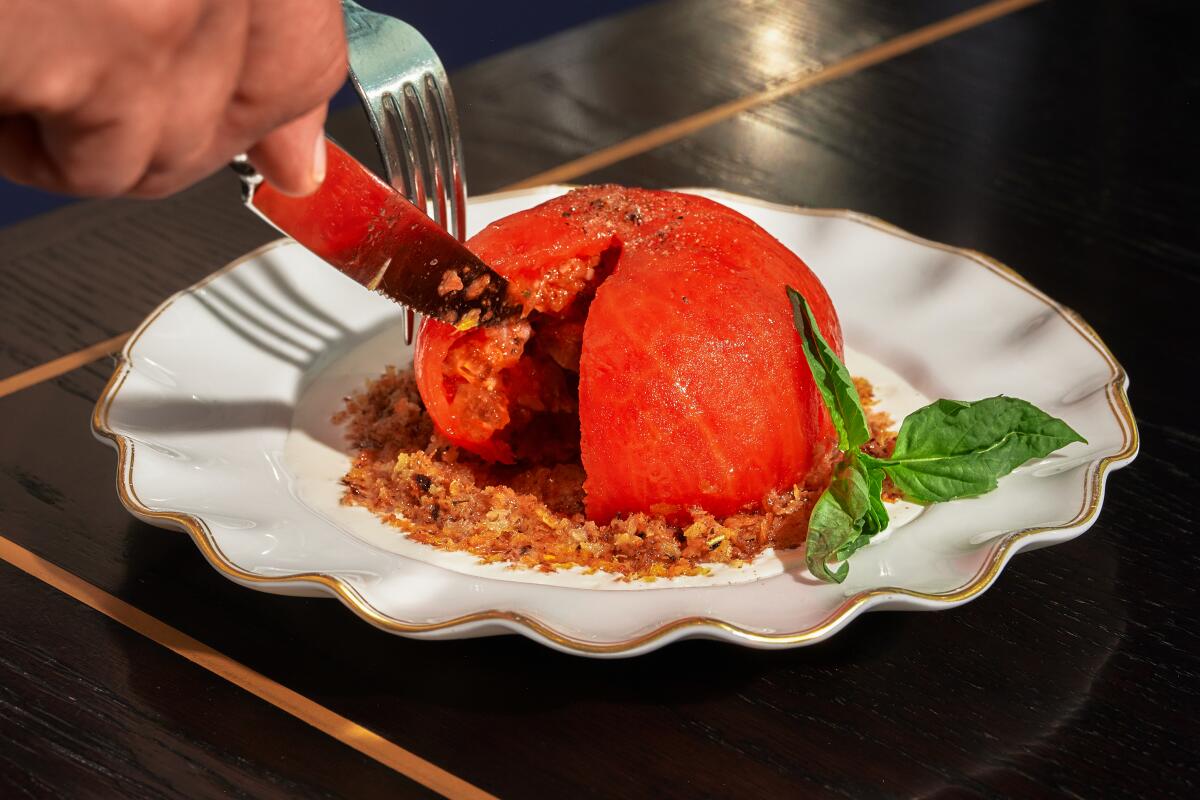
Pasjoli
During the pandemic, Beran closed his tiny, cerebral tasting-menu restaurant, Dialogue, so he can be spied in Pasjoli’s open kitchen almost every night. As a chef he’s always been a precisionist brainiac, geeking out on laborious technique and symbolist presentations. The autumn season finds orange and brown micro-flora scattered like fall foliage over a buttery crab crêpe, and loamy duck rillettes in a tart shaped like a leaf and surrounded by black-green lettuces.
The food is evolving. Initially the restaurant aimed to re-create canonical Gallic dishes: steak tartare, a trembling onion tart that subbed for soupe a l’oignon, the gory and glamorous pressed duck that was, at first, tableside theater and now is prepared in the kitchen. Now there are dishes like a pork chop in a reduction sauce made from trotters and ham hocks and finished with a hazelnut vinaigrette, or gorgeously seared halibut over yuzu beurre blanc and a tumble of sautéed broccoli, spinach and pine nuts. It comes off as less controlled and more pleasure-centered. French is still the default shorthand for the cooking. “Beranaise” would be more accurate.
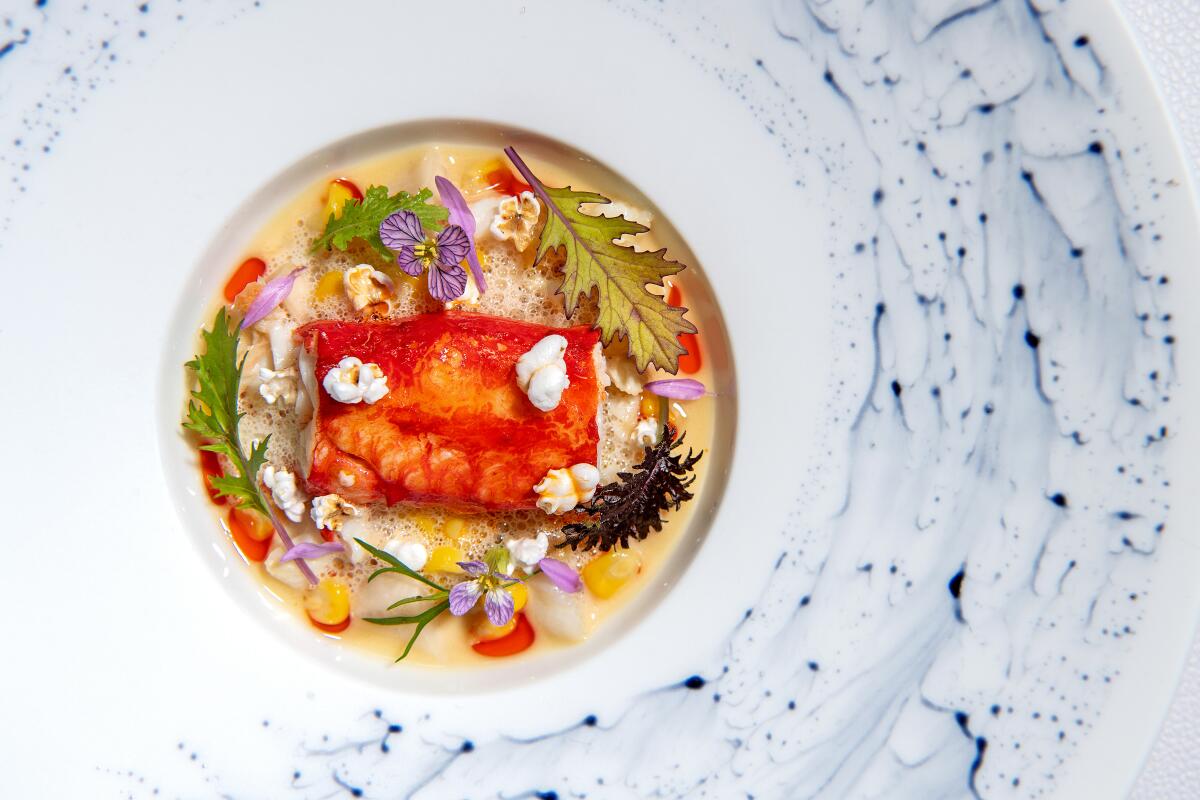
Providence
Cimarusti and his longtime chef de cuisine, Tristan Aitchison, make constant, restrained changes to their tasting menu. No one meal looks the same from night to night, but expect fish and crustaceans (caught mostly from American waters, though occasionally from Japan and elsewhere) served in vivid oils or buttery sauces with sculpted vegetables, all set down in lovely symmetries. It’s the extra touches that linger in the memory: the incredible sourdough boule using wheat from Tehachapi Grain Project; the pile-it-on luxe options of the restaurant’s famous uni egg as well as cocktails prepared tableside; and the city’s hands-down finest service team, led by Cimarusti’s co-owner, Donato Poto, who grasp the importance of human connection in such a rarefied setting. My sole wish here is for the return of Providence’s Friday lunch, a power scene that was like no other in L.A.
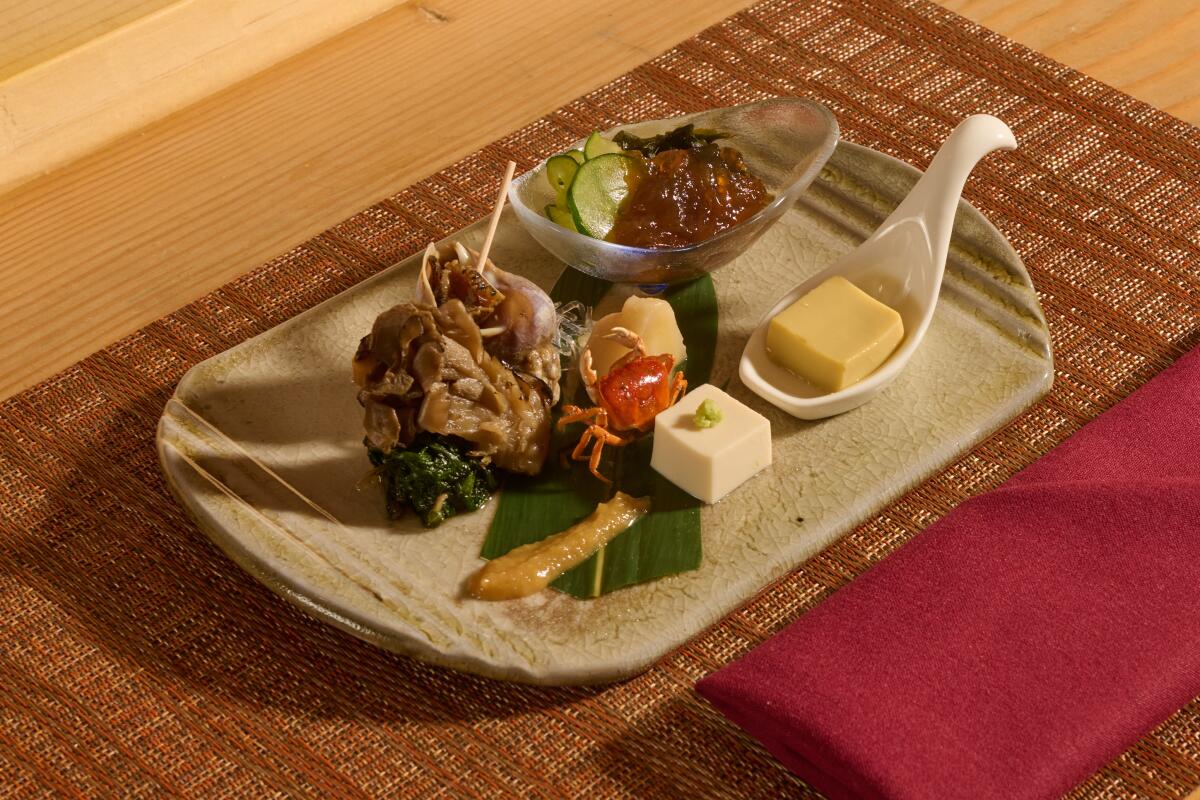
Shin Sushi
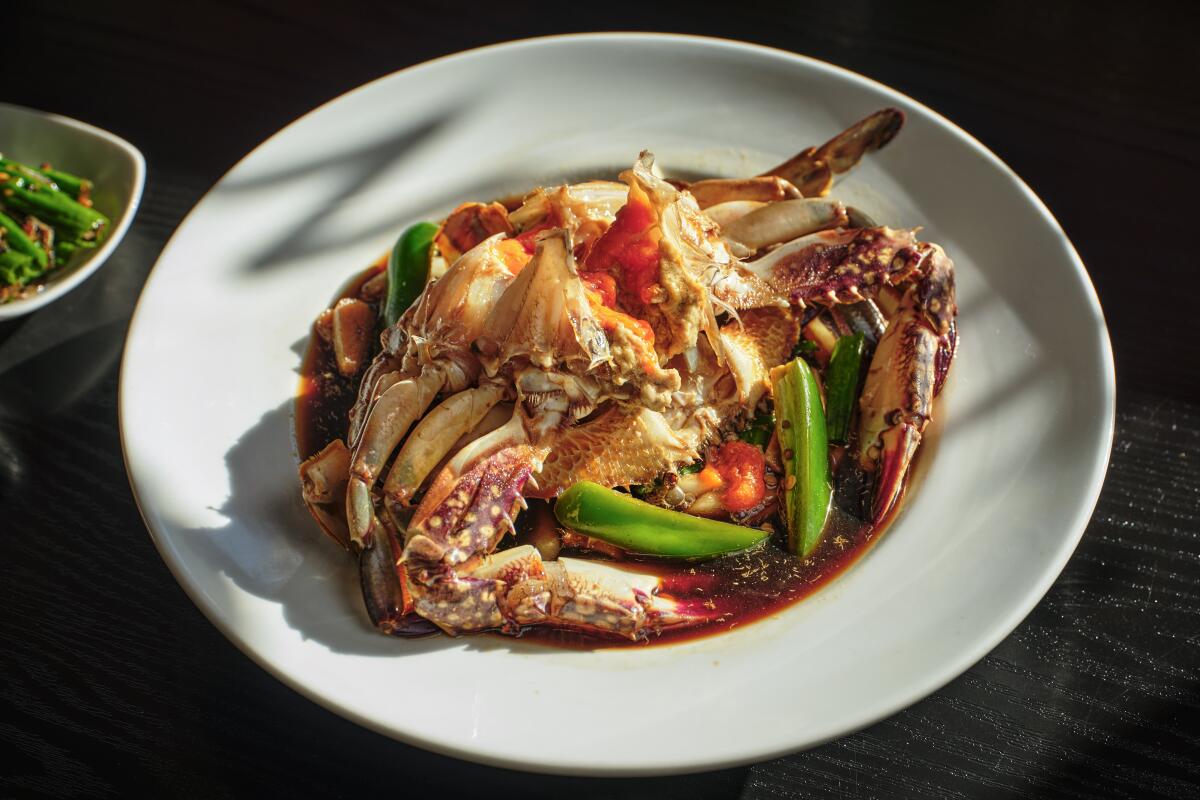
Soban
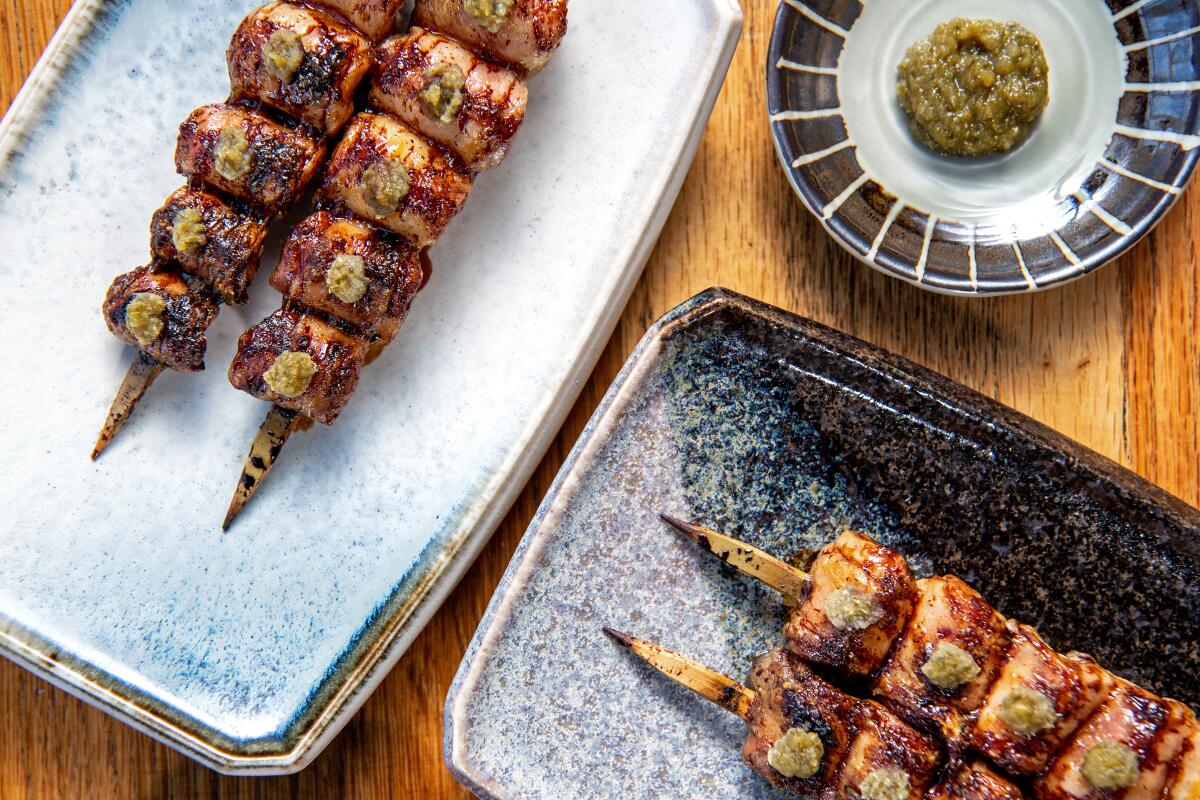
Tsubaki
Between Tsubaki and the couple’s next-door bar, Ototo, Kaplan maintains the most enlightening and thrilling selection of sake on the West Coast. It too changes with the seasons, as brewers release effervescent nama sakes in the spring and fuller-bodied counterparts in the fall. On the plate and in the cup, the duo’s combined sense of experimentation makes the place (and those eating there) feel alive with possibility. Ever wondered where a food critic chooses to celebrate his own birthday? Here’s the answer.
Eat your way across L.A.
Get our weekly Tasting Notes newsletter for reviews, news and more.
You may occasionally receive promotional content from the Los Angeles Times.



